63-year-old general physician allegedly murdered by four men
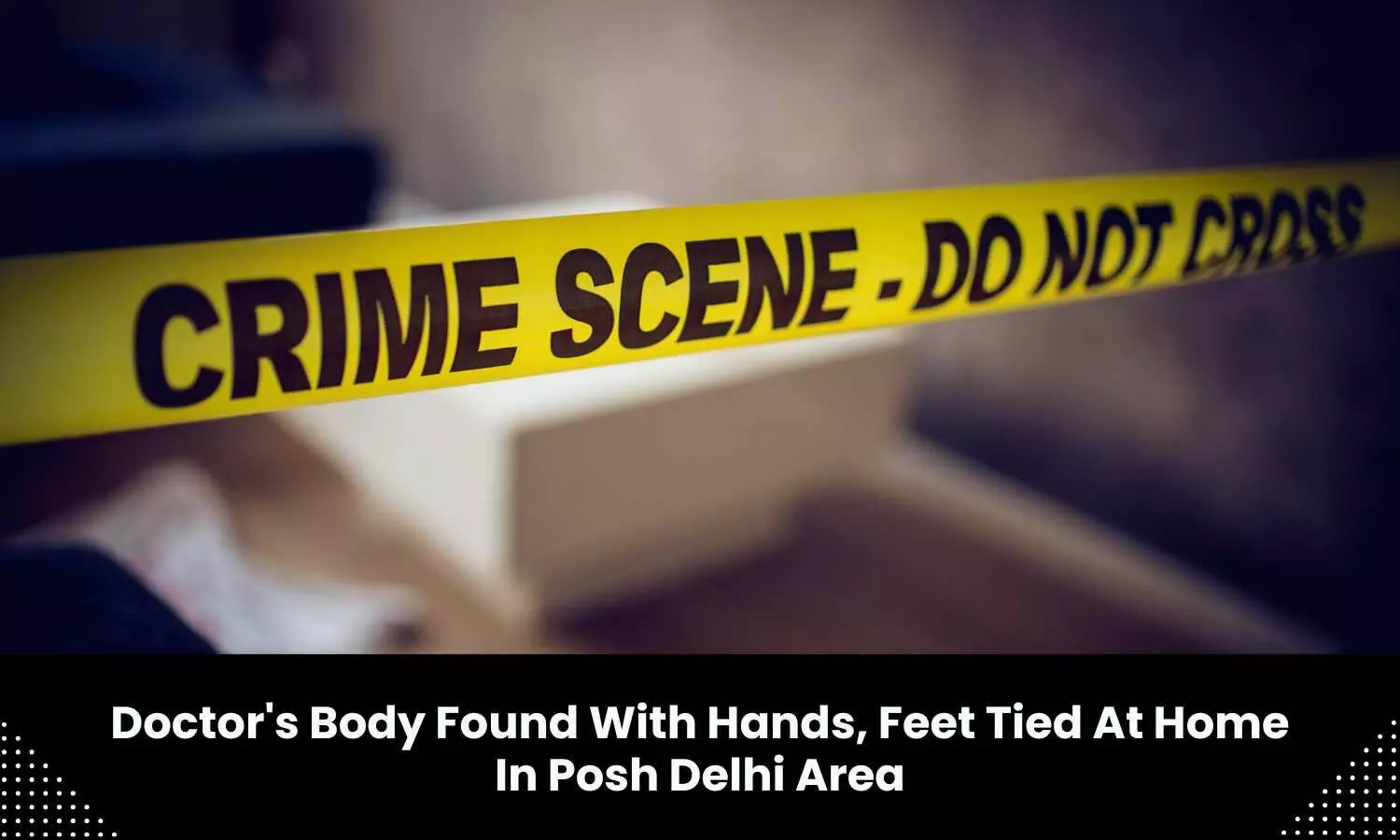
Powered by WPeMatico

Powered by WPeMatico
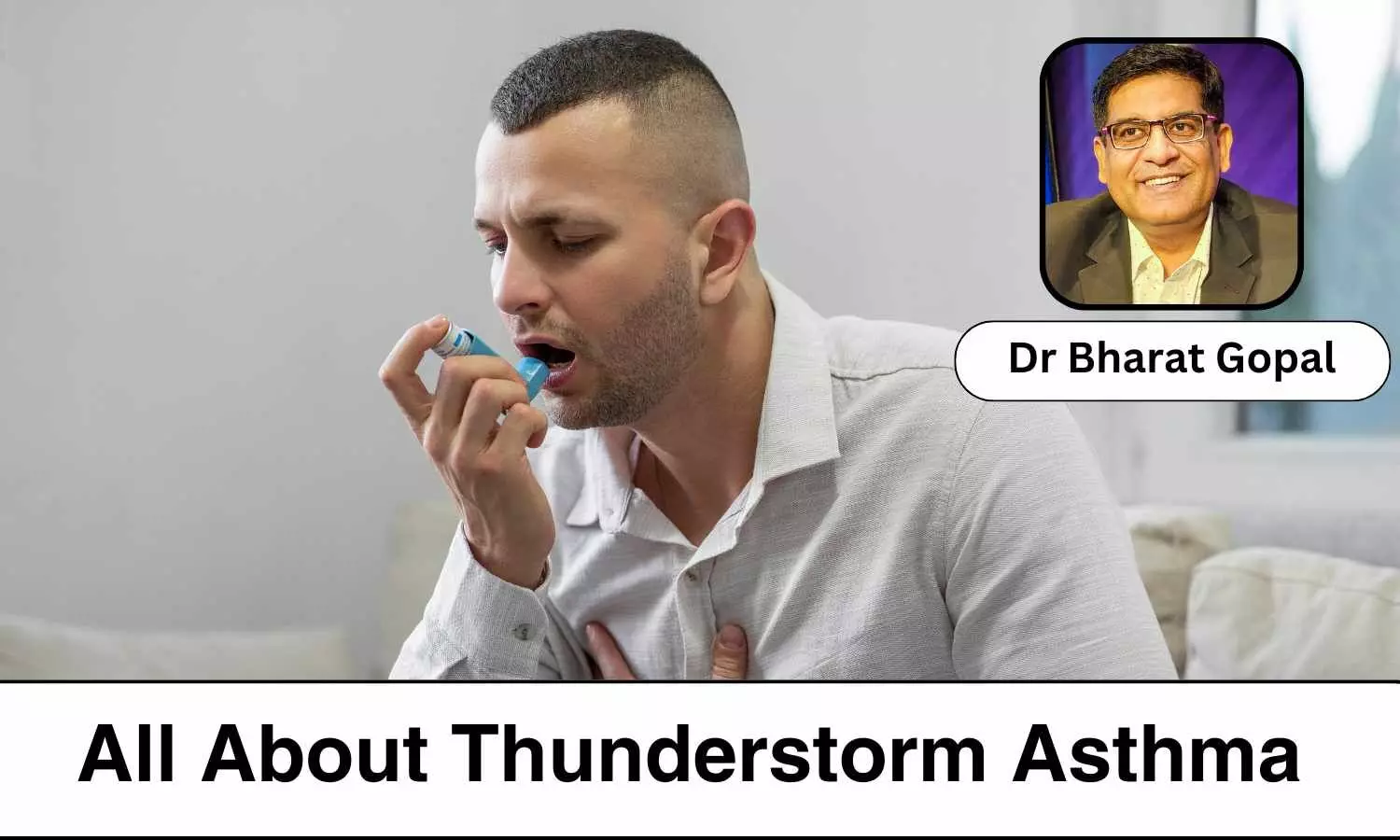
These sudden storms have definite health consequences. What is
described in literature is that such events lead to a concentration of pollen,
allergens, and dust in the air. These particles are swept up into clouds where
humidity is high.
In the clouds, the effects of wind, humidity, and lightning
break up the particles to a size that can readily enter the nose, sinuses, and
lungs. High-speed winds tend to then concentrate these small particles so that
far greater amounts are inhaled.
These can harm anyone, but definitely those
with pre-existing allergies and asthma and extremes of age –Children and
elderly may suffer more. This may lead to symptoms such as a runny nose,
sneezing, and itchy eyes along with breathlessness and wheezing.
Thunderstorm
asthma is a serious health concern that requires understanding its causes,
symptoms, and prevention methods. Individuals can take proactive steps to
minimize its impact on their health and well-being.
Causes of
Thunderstorm Asthma
The main
cause of thunderstorm asthma is the concentration of pollen, allergens, and
dust particles in the air during thunderstorms. These particles become airborne
and are broken down into smaller sizes by the effects of wind, humidity, and
lightning. High-speed winds then further concentrate these particles, making
them more easily inhalable.
Symptoms
of Thunderstorm Asthma
Symptoms of
thunderstorm asthma can vary in severity but commonly include a runny nose,
sneezing, itchy eyes, breathlessness, and wheezing. These symptoms can develop
rapidly during or shortly after exposure to the storm.
Prevention
of Thunderstorm Asthma
To minimize
the risk of thunderstorm asthma, individuals can take the following preventive
measures:
By
understanding the causes, symptoms, and prevention methods of thunderstorm
asthma, individuals can better protect themselves during thunderstorms and
minimize the risk of respiratory distress. Prompt medical attention should be
sought if symptoms of thunderstorm asthma occur, ensuring timely intervention
and management.
Powered by WPeMatico
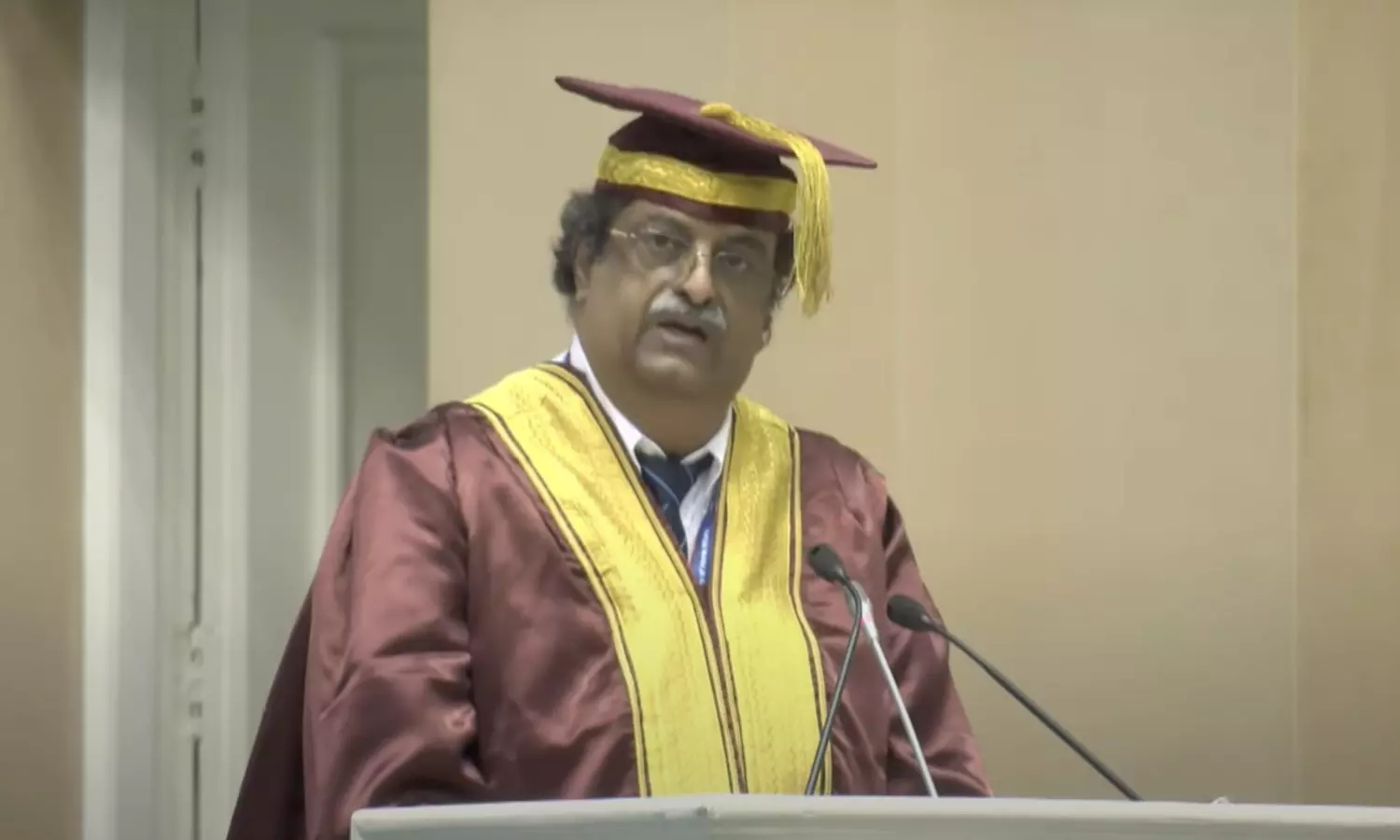
New Delhi: This year, altogether 9,500 students appeared in the Diplomate of National Board (DNB) Exit examination and among them, 4,500 students were MD/MS who also added the additional DNB degree to their credentials, informed NBEMS President Dr. Abhijath Seth, terming it to be an “interesting observation”.
“There was interesting observation that during this DNB exit examination, this year it was taken up by 9,500 students and 4,500 students were MD/MS who also took the additional degree of DNB as the credentials. And that is certainly a big compliment to the DNB examination system,” Dr. Seth said while addressing the 22nd Convocation of the National Board of Examinations in Medical Sciences (NBEMS) in New Delhi yesterday.
Dr. Seth’s comment comes only weeks after Niti Aayog member Dr. V K Paul recently stressed the importance of DNB programmes to create a speciality workforce in India and deal with the shortage.
“DNB programmes are so important for our nation’s journey to create a workforce, the speciality workforce that we all should put our weight and time behind if possible,” Dr. Paul had earlier said.
During the 22nd Convocation programme of NBEMS, Dr. Seth gave commitment to the Union Health Ministry on behalf of the NATBOARD to align the National objectives of medical education adding that it will help “to go together with the inclusiveness to achieve whatever is required to upscale the medical education in India.”
NBE Reforms:
Referring to NBEMS reforms, Dr. Seth pointed out that NBEMS has three arms- accreditation, examinations and training & teaching. “You all are well aware that we are conducting the NEET PG examination with the reasonable success in a equitted and transparent and a safe way and we will continue to do so. Last year we took a examination, computer based examination of more than 2,00,000 students and this year also we will be repeating the same and we ensured all sorts of safety, security and transparency in the examination system. We also conduct DNB exit examinations, Foreign Medical Graduates licentiate examinations, and NEET SS and NEET MDS examination,” he said.
Regarding the issue of accreditation, Dr. Seth informed that NBEMS has altogether 14,700 DNB seats. “We could have done much more but there are certain restrictions like during COVID also the restrictions we cause our larger players are the private sectors and corporate organisations. So, certainly we try to find innovative ways to encourage more and more organisations to be a part of the DNB accreditation process,” he said.
He stated that there should be at least 1 postgraduate medical seat for every UG student and added, “We completely align with the concept that every UG student must be able to get pg seats and it should be 1:1 ratio and we are committed from the NBEMS side whatever we can do with the inclusiveness and teamwork we will be able to deliver it.”
Importance of Digital Learning:
Highlighting the reforms in the training and teaching programme, Dr. Seth added, “We understood that while increasing the number of seats we must not dilute our qualities and hence we have developed the Phygital model where the original physical training is being complimented not replaced but is complimented by digital learning including skill learning, virtual learning and e learning. So far we have conducted 7,000 webinars in last 3 to 4 years and this will double in the next year that is our promise from the DNB side.”
He further informed that NBEMS has already rolled up the programme of National NBEMS skill development programme adding that NBEMS has endorsed more than 15 premiere institutions that are doing the skill training programme.
“From next year we will be certainly increasing more and more skill centres, we will endorse them and we will make sure that it is easily accessible to the DNB students for the teaching and training,” he mentioned.
Dr. Seth added that NBEMS is in the final stage of establishing the e-library for all the stakeholders and promised that before the next convocation it will turn into a reality for all the NBEMS students.
Basic Life Support Programmes:
He also talked about a special initiative taken up in December 2023 when NBEMS board along with the Ministry of Health and Family Welfare conducted the basic life support programme with more than 20 lakh trainees across the country. Dr. Seth referred to it as “not only successful programme but certainly it’s an encouraging programme to ensure that we can optimise or minimise the sudden cardiac death across the country.”
Further, he talked about the good medical practice guidelines for all stakeholders adding that it is available online. He also informed that NBE is running the professionalism communication workshop across the country.
“We have enrolled the joint accreditation system where the more than one organisation can take part in a single DNB programme. This is particularly with their intention to increase the integration as well as the quality of the DNB training programme,” he further mentioned, adding that NBE is also introducing the artificial intelligence in the healthcare with the Chennai IIT.
“We are introducing the artificial intelligence in the healthcare with the Chennai IIT and this is for the post MBBS students and this will be implemented in this year,” he said.
NBE conferred 12,338 degrees to the candidates across the country from the 2021-2024 batch. It also conferred gold medals to the achievers and toppers. The President of India, Smt Droupadi Murmu graced and addressed the 22nd convocation of the National Board of Examinations in Medical Sciences.
Underlining the importance of golden hour in medical emergencies, the President said that the life of patients could be saved if they get treatment during this period. She said that specialist doctors should be sensitive towards emergency patients and they should never ask an emergency patient to go somewhere else for treatment.
Giving reference of the saying -‘justice delayed is justice denied’, President Murmu stressed that in the healthcare sector, the time is even more important because treatment delayed may be life denied. She said that sometimes we hear the sad news that if timely treatment had been given, the life of the person could be saved. Even if life is saved, in many situations, treatment delayed is health denied. Such examples are often seen in paralysis patients. Due to lack of timely treatment, patients lose the ability to move their limbs and become dependent on others.
The President appreciated the past and present members of NBEMS for their contribution to medical education over the past nearly four decades. She noted that the efforts of NBEMS have significantly increased the availability of specialist doctors in the country.
Also Read: Meeting Specialists Shortage, Dr VK Paul Calls for Support for DNB Programmes
Powered by WPeMatico
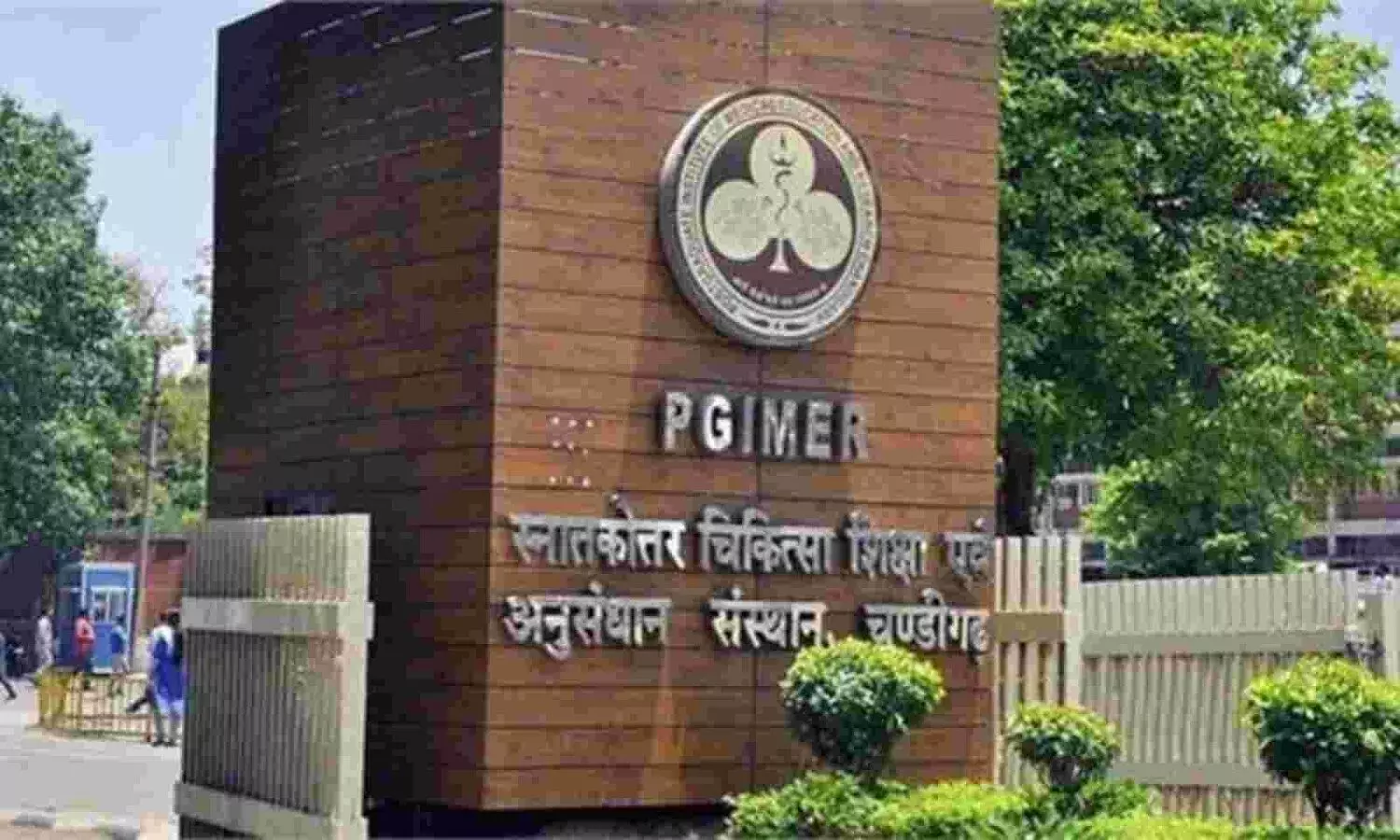
Chandigarh: In response to the escalating demand for
expanded healthcare services for high-risk pregnancies and neonatal cases, the
Postgraduate Institute of Medical Education and Research (PGI) Chandigarh,
has announced plans to hire 95 new faculty members for its upcoming Advanced
Mother and Child Centre (AMCC).
The proposal underscores the significant increase in
outpatient visits for antenatal care, surging from 28,000 in 2012 to over
41,000 presently, signifying a notable surge in demand for services.
Additionally, the influx of low birth weight and high-risk neonates requiring
NICU care has risen by over 250% in the past 15 years. The number of sick
newborns referred to PGIMER has also witnessed a substantial rise.
These infants are admitted to PGIMER for specialized care
such as incubator support, ventilator assistance, and multi-organ care.
However, due to bed shortages, many neonates are unable to secure a NICU bed.
Currently, the hospital receives nearly 3,500 sick neonates annually in need of
NICU care.
Powered by WPeMatico
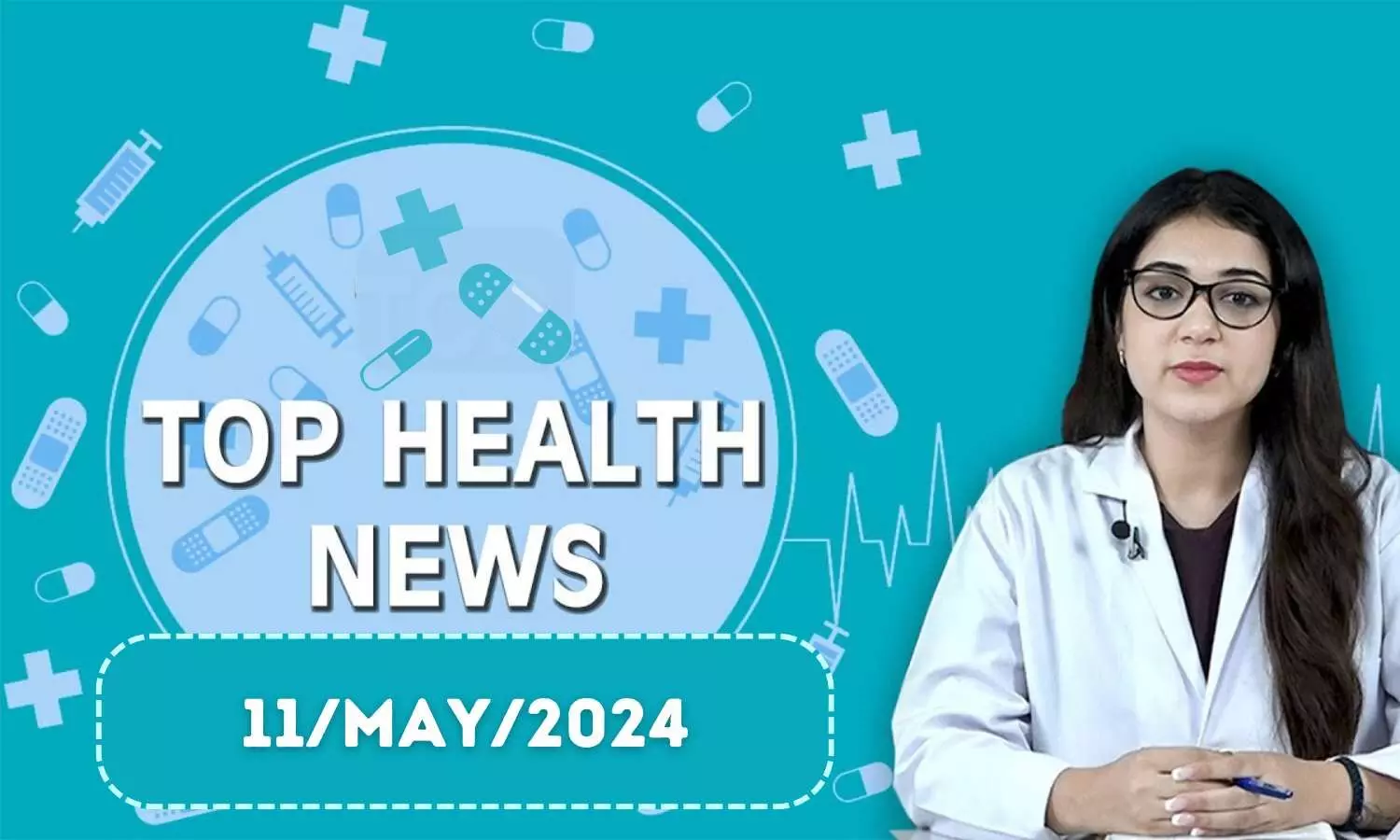
Here are the top health stories for the day:
Study: Just 3 night shifts can increase risk of diabetes, obesity
Powered by WPeMatico
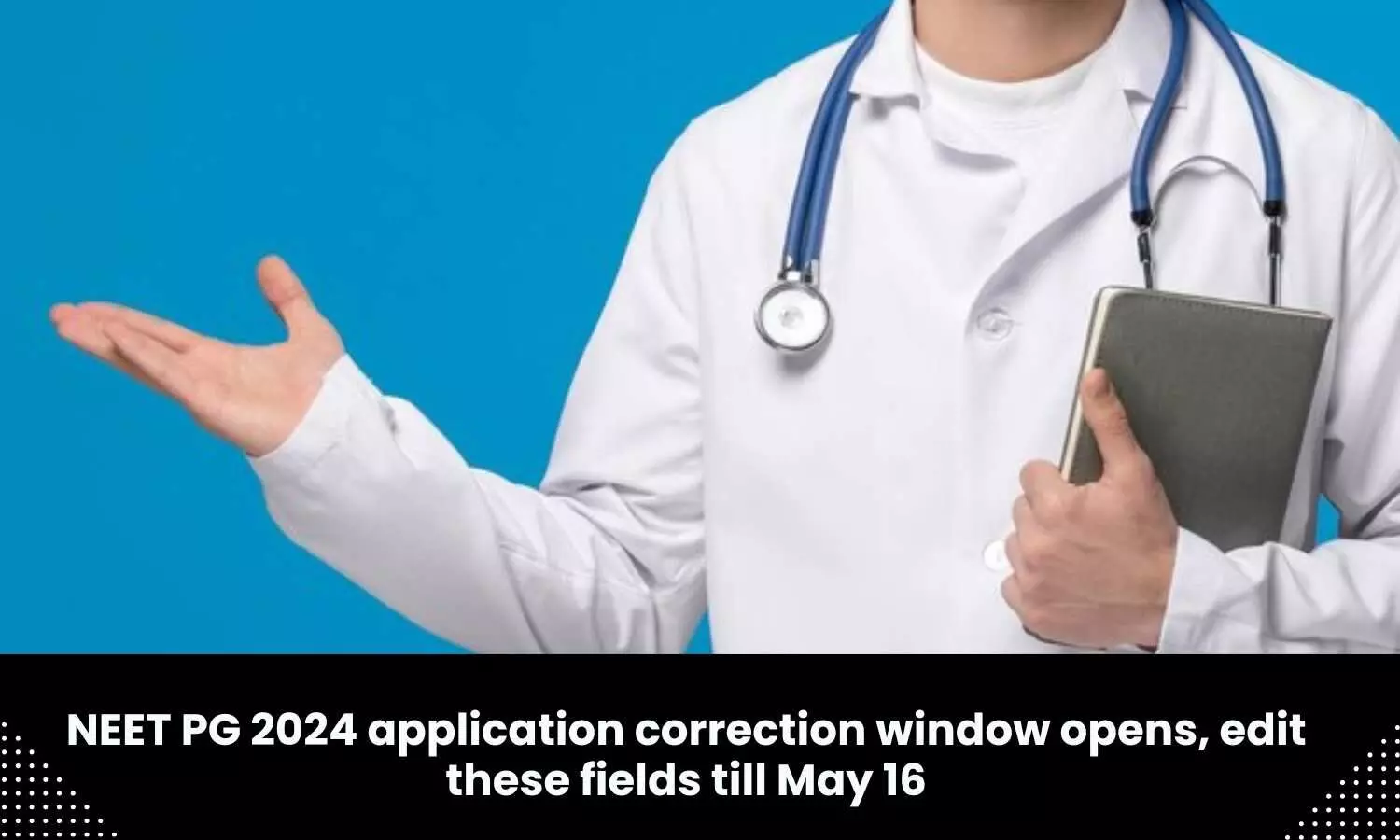
Powered by WPeMatico
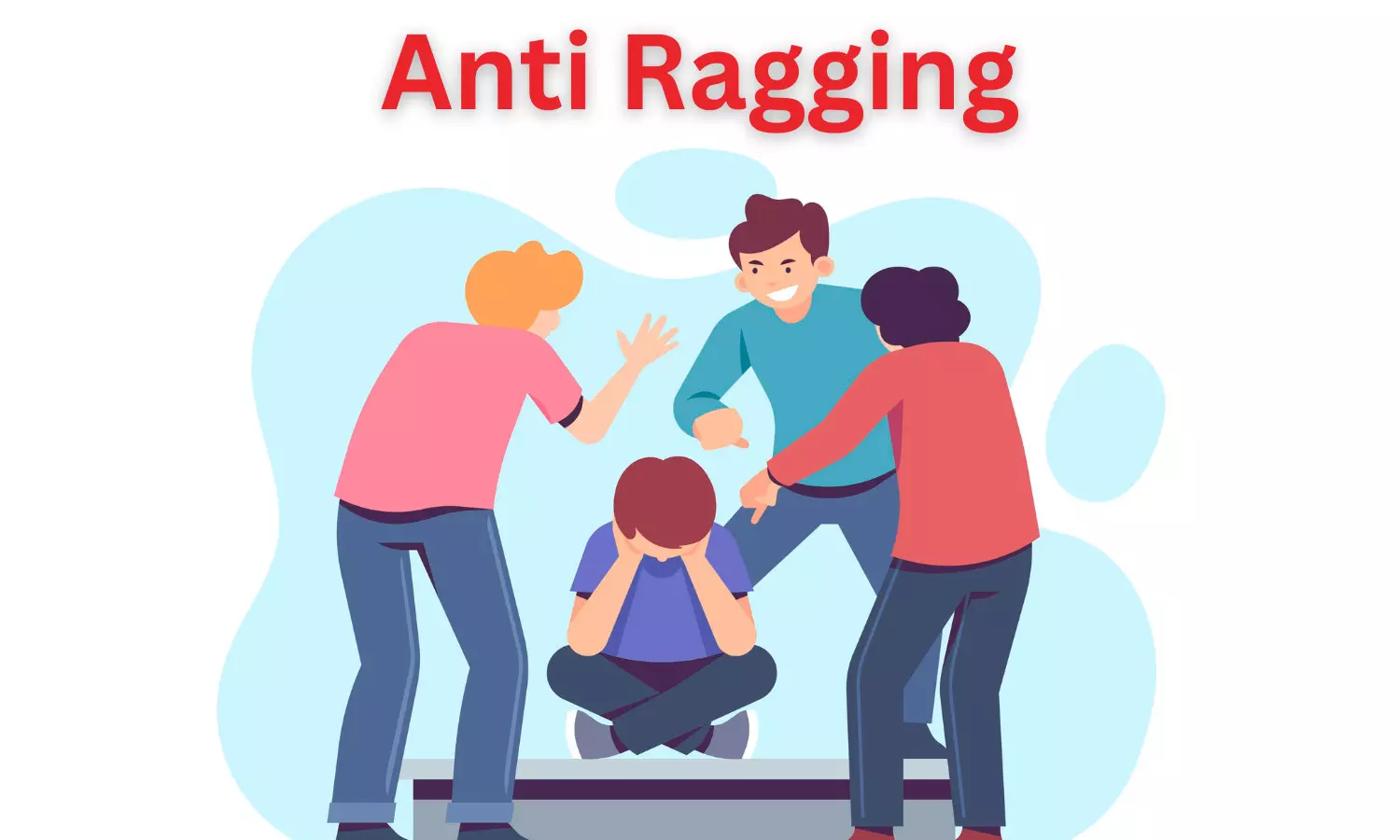
New Delhi- The Dental Council of India (DCI) has yet again released an updated list of defaulter dental colleges that have ethier not conducted the Anti-Ragging Orientation Program or not uploaded the 2023-24 report on the DCI Anti-Ragging online module.
Naming and shaming these colleges, the recently updated list includes the names of a total of 74 dental colleges from 22 states in India that have not uploaded the Anti-Ragging 2023-24 report. As per the previous list of defaulter dental colleges, a total of 96 dental colleges were named which had not uploaded the Anti-Ragging 2023-24 report.
|
S.NO |
STATE |
TOTAL COLLEGE |
|
1 |
Maharashtra |
8 |
|
2 |
Gujarat |
2 |
|
3 |
Karnataka |
7 |
|
4 |
Kerala |
8 |
|
5 |
Delhi |
5 |
|
6 |
Jharkhand |
2 |
|
7 |
Uttar Pradesh |
10 |
|
8 |
Andhra Pradesh |
4 |
|
9 |
Rajasthan |
3 |
|
10 |
Bihar |
3 |
|
11 |
Chandigarh |
1 |
|
12 |
Punjab |
3 |
|
13 |
Madhya Pradesh |
4 |
|
14 |
Himachal Pradesh |
1 |
|
15 |
Pondicherry |
1 |
|
16 |
Chhattisgarh |
1 |
|
17 |
Tamil Nadu |
3 |
|
18 |
Uttarakhand |
1 |
|
19 |
Haryana |
4 |
|
20 |
Odisha |
1 |
|
21 |
West Bengal |
1 |
|
22 |
Daman and Diu |
1 |
To view the list, click the link below
Medical Dialogues had earlier reported that the colleges had been directed to conduct an orientation program/workshop at their premises at the beginning of the BDS Course by inviting /calling any one member of the Dental Council of India from their state or neighbouring states (if not available in their state) for periodic training of the members of the anti-ragging cells/committees/squads of dental colleges and for awareness about ragging amongst students (freshers and seniors).
The colleges were also directed to furnish the following documents to the DCI office after the conduction of the orientation program-
1 Report of the Anti-Ragging Orientation Program.
2 Name of the DCI Member attended the said program.
3 List of participants in the said program.
4 Photographs of the said program.
Ragging is a criminal offence and hence the ‘DCI Regulations, 2009’ have been framed to prohibit, prevent and eliminate the menace of ragging in dental colleges.
Powered by WPeMatico
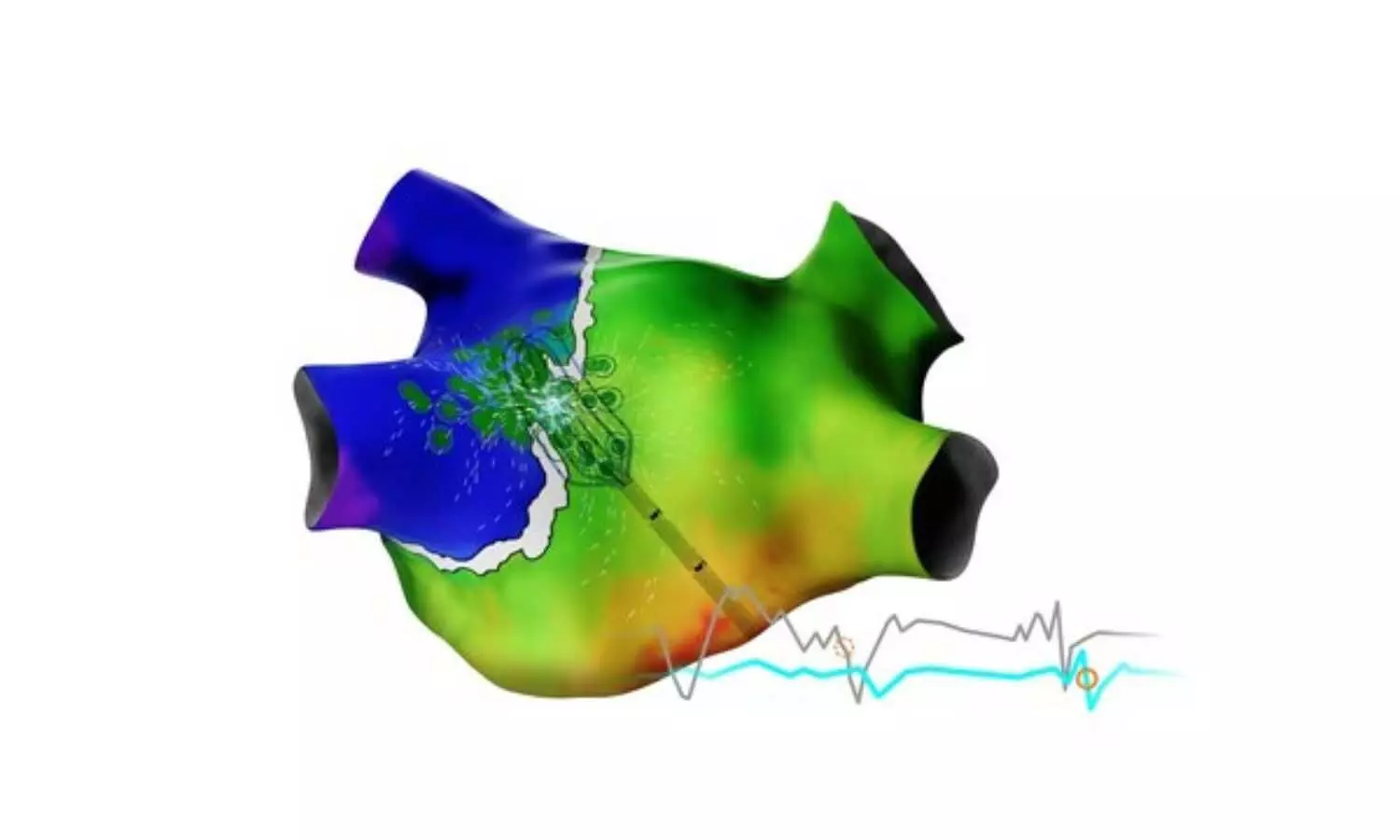
Irvine: Biosense Webster, Inc., a global leader in cardiac arrhythmia treatment and part of Johnson & Johnson MedTech, has announced the launch of CARTO 3 System Version 8, the latest version of the company’s three-dimension (3D) heart mapping system used in cardiac ablation procedures. The software features new modules including the CARTO ELEVATE Module and CARTOSOUND FAM Module, designed for efficiency, reproducibility, and accuracy for electrophysiologists performing catheter ablation procedures to treat patients with atrial fibrillation (AFib) and other arrhythmias.
“We are pleased to announce this new version of our CARTO 3 System, which reflects our continued focus on harnessing the latest science and technology to advance tools for electrophysiologists to treat cardiac arrhythmias,” said Jasmina Brooks, President, Biosense Webster, Inc. “The CARTO 3 System has been the cornerstone of catheter ablation procedures for more than a decade, helping electrophysiologists make treatment decisions. This new version advances the CARTO 3 mapping and ablation experience through enhanced signal analysis, improved substrate characterization, and utilization of ultrasound technology.”
New optional CARTO 3 System Version 8 modules include:
CARTOSOUND FAM: the first use of an artificial intelligence algorithm, cleared by the FDA in intracardiac ultrasound for Biosense Webster. The algorithm enables automatic generation of the left atrial anatomy before inserting the catheter to the left atrium, saving time while also providing a highly accurate map.
CARTO ELEVATE: incorporates several new features designed to meet electrophysiologists’ needs:
“CARTO 3 System Version 8 incorporates a novel component, the CARTOSOUND FAM Module, which, for the first time, utilizes artificial intelligence to reconstruct the left atrial anatomy, streamlining the process for electrophysiologists,” said Luigi Di Biase, M.D.v, PhD, FACC, FHRS, FESC, System Director Electrophysiology at Montefiore-Einstein Health System and Professor of Medicine (Cardiology), Albert Einstein College of Medicine. “By eliminating the need for manual contouring, the new system represents a new approach to anatomy creation, improving the efficiency of the procedure workflow.”
“Accuracy and precision in mapping the heart when treating cardiac arrhythmias are critical for electrophysiologists, and therefore, our patients,” continued Dr. Di Biase. “The CARTO ELEVATE Module raises the bar for electro-anatomical mapping systems used in catheter ablation procedures. Capabilities such as Multipolar mapping make a difference for electrophysiologists in the electrophysiology lab, facilitating a reduction in far-field signal and increased focus on the electrical signals in the patient’s heart that contribute to arrhythmias.”
AFib is the most common type of cardiac arrhythmia and affects more than 8 million people in the United States and nearly 50 million people worldwide. Catheter ablation is a safe and effective procedure when drugs don’t work to help restore the heart’s incorrect electrical signals, which cause an abnormal heart rhythm.
Read also: JnJ Medtech’s Biosense Webster gets nod for VARIPULSE Pulsed Field Ablation platform in Japan
Powered by WPeMatico

Telangana- Through a notice, Kaloji Narayana Rao University of Health Sciences (KNRUHS) has written to the principals of all medical colleges about the implementation of certain guidelines in Postgraduate Medical Education 2023 by the National Medical Commission (NMC) and asking them implement the same in their medical colleges
“The Principals of all Medical Colleges are hereby directed to inform the students, faculty and HODs concerned that the said regulations will be implemented in the upcoming University Examinations and a copy of the regulations is herewith enclosed for your information,” the notice instructed.
The NMC in its Post Graduate Medical Regulations 2023 has made the following changes-
1. A post-graduate student of a degree course in broad speciality/super speciality will do at least one of the following to make him/her eligible to appear in his/her final examination-
i Poster presentation at a National/Zonal/State conference of his/her speciality.
ii Podium presentation at a National/Zonal/State conference of his/her speciality.
iii Have one research paper published/accepted for publication in the journal of his/her speciality as first author.
2 COURSE IN METHODOLOGY
All post-graduate students shall complete an online course in Research Methodology. The above certification shall be a mandatory requirement to be eligible to appear for the final examination of the respective post-graduate course.
3 COURSE IN ETHICS
All post-graduate students shall complete the courses in ethics including Good Clinical Practices and Good Laboratory Practices, whichever is relevant to them, to be conducted by institutions/Universities. No post-graduate student shall be permitted to appear in the examination without the above certification.
4 COURSE IN CARDIAC LIFE SUPPORT SKILLS
All post-graduate students should complete a course in Basic Cardiac Life Support (BCLS) and Advanced Cardiac Life Support (ACLS) skills to be conducted by the institution. No post-graduate student shall be permitted to appear in the examination without the above certification.
Further, the NMC has clarified that all the PG students admitted from 2021 and after will have to complete courses in Ethics and in Cardiac Life Support Skills before appearing in the examination. The courses will be designed and conducted by the respective medical college/institution till further directions.
5 The total marks for practical/clinical including viva voce are 400 marks.
6 EVALUATION OF DISSERTATIONS
Five per cent of the mark of total marks of Clinical/Practical and Viva Voce marks (20 marks) will be of the dissertation/thesis and it will be part of clinical/practical examination marks. External examiners outside the state will evaluate the dissertation/ thesis and take viva voce on it and marks will be given on the quality of the dissertation/thesis and performance on its viva voce.
To view the notice, click the link below
Powered by WPeMatico
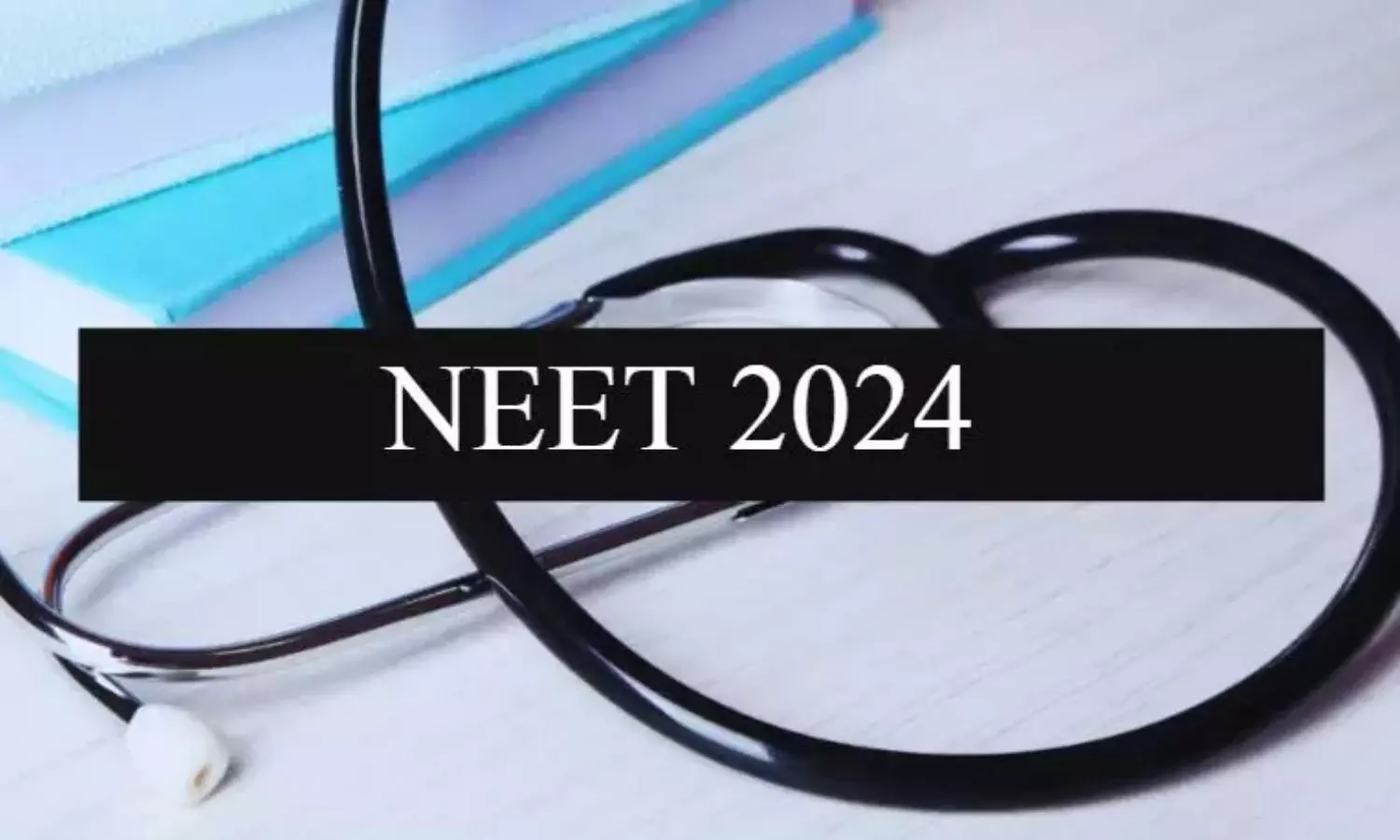
Godhra: A schoolteacher in Godhra in Gujarat’s Panchmahal district and two others have recently been booked for their alleged involvement in trying to help six candidates appearing for the National Eligibility-cum-Entrance Test Undergraduate (NEET-UG) exam by promising to solve their papers for a sum of Rs 10 lakh each.
Police informed on Thursday that a criminal case has been registered against these three individuals. Already Rs 7 lakh in cash has been recovered from the car of one of the accused.
According to an FIR, the racket was unearthed at a Godhra school designated as a centre for the NEET-UG exam held on Sunday for entrance to medical colleges after the district collector received a tip-off that some persons were involved in malpractice, PTI has reported.
The schoolteacher has been identified as Tushar Bhatt, who teaches physics and was the deputy superintendent of exam at the centre. He was booked along with two others — Parsuram Roy and Arif Vora. Rs 7 lakh in cash was recovered from Bhatt’s car which was paid to him by Vora as an advance to help a candidate get into the merit list, said the police.
All three accused were booked for criminal breach of trust, cheating and criminal conspiracy, a Godhra taluka police station official said. Further investigation in the case was underway, said the official.
According to the FIR, the accused instructed some NEET-UG aspirants to leave questions unanswered during the exam. They were told that the answers would be filled in later after the papers were collected.
The FIR was lodged at the Godhra taluka police station based on a complaint from the district education officer. As per the FIR Bhatt was working as a teacher at Jay Jalaram School and appointed the deputy centre superintendent for NEET in the city.
A team of district additional collector and district education officer reached the school on the day of the examination and questioned Bhatt. When they checked his mobile phone, they recovered a list of 16 candidates with their names, roll numbers and exam centres which was sent to his WhatsApp number by co-accused Roy, stated the FIR.
When asked about the list, Bhatt said these were candidates who were to take the NEET exam at his centre. He confessed to having been promised Rs 10 lakh each to solve the question papers of six of these candidates, District Education Officer Kirit Patel said.
One of the aspirants had paid Rs 7 lakh in advance which was seized by authorities. The investigating team seized the teacher’s mobile phone, cash and the car from where the cash was recovered and submitted a report to the district collector, who later ordered registration of an FIR.
“The FIR was lodged last night (Wednesday) and further action was being taken,” Patel said.
As per the FIR, the accused said the candidates who promised to pay money were instructed to solve the questions that they knew and leave others blank so that they could be filled with answers when papers were collected from them after the exam.
The NEET (UG) is an all India entrance test for students who wish to pursue undergraduate medical (MBBS), dental (BDS) and AYUSH (BAMS, BUMS, BHMS) courses in government and private institutions in India.
Medical Dialogues had earlier reported that the Bihar Police had arrested more than two dozen individuals, including 14 impersonators and candidates for cheating in the NEET UG 2024 exam. Among those arrested, an FIR was registered against 14 people, who were accused of impersonating registered candidates during the examination. During the interrogation, the accused known as “solvers” had revealed that Rs 5-10 lakh each was given to several centres by the gang members.
Powered by WPeMatico
